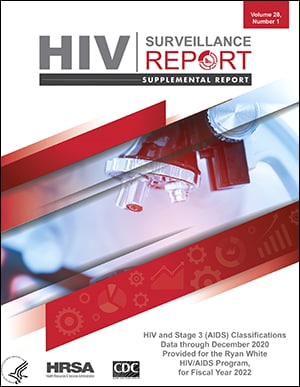HIV and Stage 3 (AIDS) Classifications Data through December 2020 Provided for the Ryan White HIV/AIDS Program, for Fiscal Year 2022: References
- Office of Management and Budget. Standards for defining metropolitan and micropolitan statistical areas. Federal Register 2000;65(249):82228–82238.http://www.gpo.gov/fdsys/pkg/FR-2000-12-27/pdf/00-32997.pdf . Published December 27, 2000. Accessed December 8, 2022.
- Office of Management and Budget. Revised definitions of metropolitan statistical areas, new definitions of micropolitan statistical areas and combined statistical areas, and guidance on uses of the statistical definitions of these areas. OMB Bulletin 03-04. http://www.whitehouse.gov/wp-content/uploads/2017/11/bulletins_b03-04.pdf . Published June 6, 2003. Accessed December 8, 2022.
- Office of Management and Budget. Update of statistical area definitions and guidance on their uses. OMB Bulletin 10-02.https://www.bls.gov/bls/omb-bulletin-10-02-update-of-statistical-area-definitions-and-guidance-on-their-uses.pdf . Published December 1, 2009. Accessed December 8, 2022.
- CDC [Schneider E, Whitmore S, Glynn MK, Dominguez K, Mitsch A, McKenna MT]. Revised surveillance case definitions for HIV infection among adults, adolescents, and children aged <18 months and for HIV infection and AIDS among children aged 18 months to <13 years—United States, 2008. MMWR 2008;57(RR-10):1–12.
- CDC [Selik RM, Mokotoff ED, Branson B, Owen SM, Whitmore S, Hall HI]. Revised surveillance case definition for HIV infection—United States, 2014. MMWR 2014;63(RR-03):1–10.
